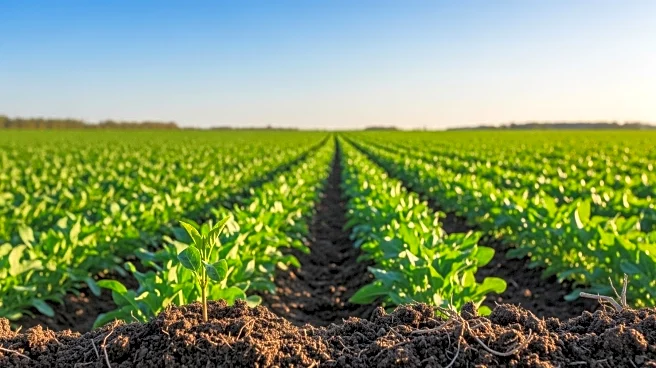What is the story about?
What's Happening?
New research published in NPJ Sustainable Agriculture warns that modern agricultural practices are degrading soil resilience, posing risks to global food supply. Intensive methods like plowing and irrigation are reducing soil quality, leading to erosion, salinization, and decreased crop productivity. The study highlights the importance of balancing short-term yield increases with long-term soil health to ensure sustainable food production.
Why It's Important?
Soil health is critical for food security, biodiversity, and climate stability. The degradation of soil due to modern agricultural practices threatens the foundation of global food systems, potentially leading to reduced crop yields and increased vulnerability to environmental shocks. Addressing soil degradation is essential for maintaining food supply and mitigating climate change impacts, requiring a shift towards more sustainable farming practices.
What's Next?
The study calls for the adoption of practices that enhance soil resilience, such as conservation tillage and integrated pest management. Policymakers and agricultural stakeholders must prioritize soil health in their strategies to ensure long-term food security. Collaborative efforts to implement sustainable practices can help reverse soil degradation and promote resilience in farming systems.
Beyond the Headlines
The research highlights the interconnectedness of soil health, food security, and climate change, emphasizing the need for holistic approaches to agricultural management. By focusing on soil resilience, stakeholders can address multiple challenges simultaneously, promoting environmental sustainability and economic stability. The study advocates for a reevaluation of current agricultural practices to align with long-term resilience goals.

















